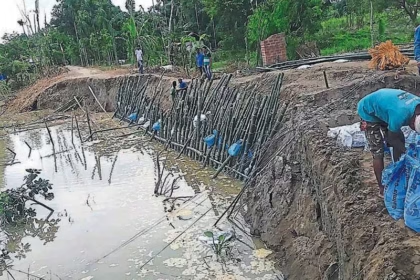President Droupadi Murmu Seeks Supreme Court’s Opinion on Timelines for Assent to State Bills
President Droupadi Murmu has exercised a rare constitutional provision and sought the Supreme Court’s advisory opinion on 14 questions to settle the law on whether the president and governors need to follow timelines to decide on state bills referred for consent when the Constitution does not prescribe it.
The reference sought by the President from the Supreme Court has come in the context of a decision of the top court on April 8 which set timelines for the Governor and President to act on bills sent for their consent by state governments. As the issue of delay by governor on bills referred by state governments are under challenge in separate petitions filed by Kerala government and in the past have been raised by states of Telangana and Punjab as well, the reference to be decided by the top court assumes significance.
The April 8 judgment was passed on a petition filed by Tamil Nadu government against the Governor’s action to withhold consent on 10 bills sent for his approval. The bills were sent back and the same was again passed by the state legislature in identical form. The governor referred the bills to the President at a time when the challenge of the state government was being considered by the top court.
The question before the court involved the power of governor and procedure to be followed to grant consent under Article 200 of Constitution and the power of President to act on a reference by governor under Article 201.
In its final judgment of 415 pages, the top court held the action of the governor to withhold consent to be illegal and erroneous and using its power under Article 142 of the Constitution, held “deemed” assent to the 10 bills, without sending the matter back to the governor.
It further provided timelines that if a governor withholds assent or reserves a bill for the President’s consideration, it must be done within three months of its presentation a governor must grant assent “forthwith” or within a month if a state legislature re-enacts an identical bill.
Even under Article 201, timelines were fixed that said the President must decide within three months of receiving a bill from a governor. It asked that the president’s office convey reasons to the concerned state if there is any delay beyond this period and required President to seek advisory opinion of Supreme Court under Article 143 of Constitution when governor refers any bill that in his opinion appears to be “patently unconstitutional”.
It is in this context, the 14 questions have been posed by President.
1. What are the constitutional options before a Governor when a Bill is presented under Article 200 of the Constitution of India?
2. Is the Governor bound by the aid & advice tendered by the Council of Ministers while exercising all options available with him when a Bill is presented before him under Article 200 of the Constitution of India?
3. Is the exercise of constitutional discretion by the Governor under Article 200 of the Constitution of India justiciable?
4. Is Article 361 of the Constitution of India an absolute bar to the judicial review in relation to the actions of a Governor under Article 200 of the Constitution of India?
5. In the absence of a constitutionally prescribed time limit, and the manner of exercise of powers by the Governor, can timelines be imposed and the manner of exercise be prescribed through judicial orders for the exercise of all powers under Article 200 of the Constitution of India by the Governor?
6. Is the exercise of constitutional discretion by the President under Article 201 of the Constitution of India justiciable?
7. dIn the absence of a constitutionally prescribed timeline and the manner of exercise of powers by the President, can timelines be imposed and the manner of exercise be prescribed through judicial orders for the exercise of discretion by the President under Article 201 of the Constitution of India?
8. In light of the constitutional scheme governing the powers of the President, is the President required to seek advice of the Supreme Court by way of a reference under Article 143 of the Constitution of India and take the opinion of the Supreme Court when the Governor reserves a Bill for the President’s assent or otherwise?
9. Are the decisions of the Governor and the President under Article 200 and Article 201 of the Constitution of India, respectively, justiciable at a stage anterior into the law coming into force? Is it permissible for the Courts to undertake judicial adjudication over the contents of a Bill, in any manner, before it becomes law?
10.Can the exercise of constitutional powers and the orders of/by the President / Governor be substituted in any manner under Article 142 of the Constitution of India?
11. Is a law made by the State legislature a law in force without the assent of the Governor granted under Article 200 of the Constitution of India?
12. In view of the proviso to Article 145(3) of the Constitution of India, is it not mandatory for any bench of this Hon’ble Court to first decide as to whether the question involved in the proceedings before it is of such a nature which involves substantial questions of law as to the interpretation of constitution and to refer it to a bench of minimum five Judges?
13. Do the powers of the Supreme Court under Article 142 of the Constitution of India limited to matters of procedural law or Article 142 of the Constitution of India extends to issuingdirections /passing orders which are contrary to or inconsistent with existing substantive or procedural provisions of the Constitution or law in force?
14. Does the Constitution bar any other jurisdiction of the Supreme Court to resolve disputes between the Union Government and the State Governments except by way of a suit under Article 131 of the Constitution of India?
Also Read: Madhya Pradesh HC Orders FIR Against BJP Minister Over Remarks on Colonel Sofiya Qureshi







